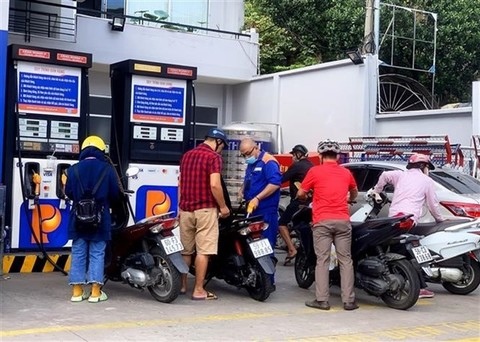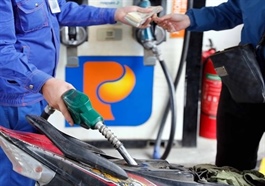Fuel businesses and consumer rights must go hand-in-hand
Fuel businesses and consumer rights must go hand-in-hand
Fuel prices remained a thorny issue for regulators, mainly on how to calculate retail prices with the Ministry of Industry and Trade (MoIT) saying the Government has no intention of imposing prices on motorists, but it will take actions to ensure consumer rights are protected.

People top up their motorbikes at a fuel station in HCM City. — VNA/VNS Photo |
The MoIT said prices can be adjusted once every seven days after factors including exchange rates, special consumption tax, VAT and import tax are added by fuel traders. Traders should be able to regulate their prices, but retailers are not allowed to go over a retail ceiling price. In addition, they must be able to show and justify how their retail prices are calculated to regulators.
"These changes will help balance fuel supply and demand, avoiding shortages and maintaining energy security. At the same time, fuel prices can be brought closer to the market price while still being regulated by State agencies," said a representative from the Domestic Market Department under the MoIT.
Vũ Vinh Phú, an industry expert, said it would be a necessary step before fully opening up the fuel market.
"The idea is to run a pilot before introducing a fuel exchange, which offers a more long-term solution to create a healthy, market-driven and transparent industry," he said.
He said by removing constraints both traders and retailers can better plan their financial operations.
Meanwhile, others called for strong policies from the central government to prevent monopoly and duopoly.
Dr Nguyễn Quốc Việt, deputy director of the Institute for Economic and Policy Research (VERP) said allowing businesses to set their own prices must go hand-in-hand with control measures to make sure that prices will not rise too sharply.
Nguyễn Xuân Thắng, director of a fuel retail business in HCM City, said giving traders all the power to decide retail prices will put retailers in a severely disadvantaged position, which may cause market disruptions, similar to last year's fuel shortages.
He proposed that traders should set wholesale prices, while leaving retail prices to retailers.
Industry experts have for some time called for the establishment of a fuel exchange to help regulate prices, demand and supply in the domestic market.
























